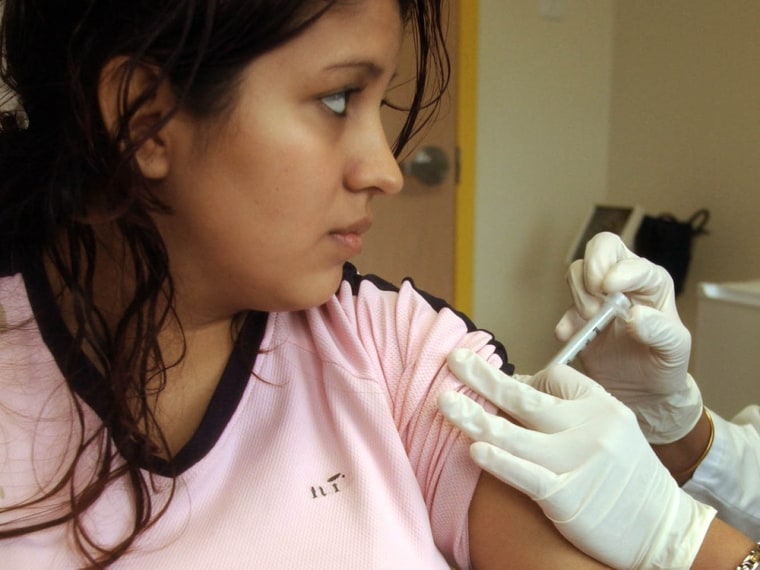This flu season has hit the country hard, with 30 states reporting widespread illness in people who’ve caught the virus. Most people who fall sick can head straight to the drug store. Coughing up a lung? Try an antihistamine. Stuffy nose? Buy some decongestant.
But when you’re expecting a baby, forget those familiar flu drugs. Avoid ibuprofen, and most over-the-counter cough and cold medicines, until talking with your obstetrician, experts say.
So what can you do for the flu if there’s a baby in your belly? Stay in bed, stick to saline sprays and the neti pot nasal rinse, and drink lots of fluids, doctors say.
The taking Tylenol to reduce a fever. A fever caused by the flu early in pregnancy can cause birth defects.
A pregnant woman is more likely to suffer from severe illness from the flu because of changes to her immune system, heart and lungs, experts say.
“Although most pregnant women who get the flu are fine, for some women it can cause serious health problems and can put their unborn baby at risk,” says Dr. Siobhan Dolan, an obstetrician at Montefiore Medical Center in New York and author of the book "Healthy Mom, Healthy Baby: The Ultimate Pregnancy Guide."
“If pneumonia develops in a pregnant woman with the flu, her lungs work less effectively and her baby may get less oxygen than needed," she adds.
Pregnant women have a high risk of hospitalization and even death if they get the flu while pregnant, says Dr. Geeta Swamy, director of obstetrics clinical research at Duke University. “They are at risk for delivering their babies prematurely as well as significant risks for fetal and infant death.”
But there are plenty of preventive measures moms-to-be (and everyone else) can take to avoid the flu. The first and most important step should be to roll up your sleeve for a flu shot.
A study this week confirmed the flu shot’s safety during pregnancy, and found vaccinated moms-to-be actually miscarried less often than pregnant women who weren’t vaccinated.
“Many women have concerns about the safety of influenza vaccine, and vaccines in general, during pregnancy for themselves but moreover for their unborn baby,” says Swamy. “However, scientific evidence has shown exactly the opposite.”
Women who receive the flu vaccine during pregnancy have a lower chance of getting the flu, which reduces the risk of preterm birth and low birth weight of their unborn babies, Swamy says. What’s more, when an expectant mother gets a flu shot, it protects her baby after birth by reducing the chance that the infant will get the flu during first six months of life, thanks to the antibodies passed through the placenta -- and possibly through breast milk after birth.
Moms-to-be also can keep viruses like the flu at bay by covering their noses and mouths when they cough and sneeze, and washing hands often with soap and water. It's also a good idea keep distance from sick people and routinely clean doorknobs, phones and keyboards to help remove germs.
Still, you can scrub doorknobs all day, get a flu shot -- and still end up sick in bed.
Shannon Smith, 33, was five months pregnant with her second daughter when she got the flu last month. So did her 16-month-old daughter, even though they'd both had flu shots.
“It was horrible!” says the media relations consultant from Grand Rapids, Mich.. “It started with fever, aches and congestion. Then it turned into a hacking cough.” To cap it off, Smith had a sinus infection and her daughter had a double ear infection and pink eye. “We watched a lot of Disney movies the days we were both feeling miserable.”
Smith says she read and reread the pregnancy-safe medication list provided by her doctor. “I tried to use everything sparingly, but eventually my doctor had to write a prescription cough medicine because I hadn't slept in five nights.”
If you’re in bad shape like Smith, and feel flu-like symptoms including fever, headache, body aches, nausea, vomiting, and diarrhea, be sure to call your doc immediately. Doctors may prescribe two antiviral drugs, Tamiflu or Relenza, that have been found to be safe during pregnancy.
“Tamiflu, the standard treatment for the flu, is safe during pregnancy and most effective if it is started within the first 48 hours of symptom onset,” says Swamy. “Tamiflu is also recommended if a pregnant woman has had a significant exposure to someone else with flu-like symptoms or has been diagnosed for the flu.”
But often the best remedy a pregnant mom caught with the flu could ask for is an extra set of hands.
Jessica Connolly, 34, was five months' pregnant and out doing a last-minute-grocery-grab the Saturday before Christmas when she felt the chills come on. By the time the stay-at-home-mom of three arrived back to her New Canaan, Conn., home, she ached everywhere — despite having had a flu shot.
After she took her temperature, which had spiked to 102.5 degrees Fahrenheit, she immediately called her doctor who prescribed Tamiflu and fluids.
“For the rest of the day, I ate soup and crackers, drank ginger ale and water, and rested in bed watching 'Gone with the Wind,'” says Connolly, who called it the best experience a pregnant mom with the flu could have.
“If I hadn't had my hubby home for the holidays, his sister who is a doctor giving me advice, and parents there to watch the kids, it could have been much worse. When again in the next 20 years am I going to get five hours in my own bed to watch a movie in the middle of the day?" she says.
